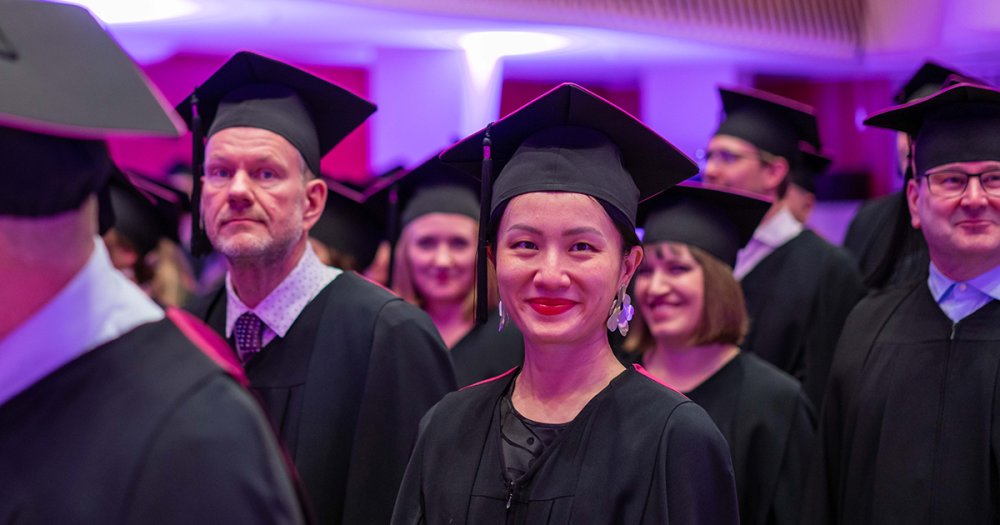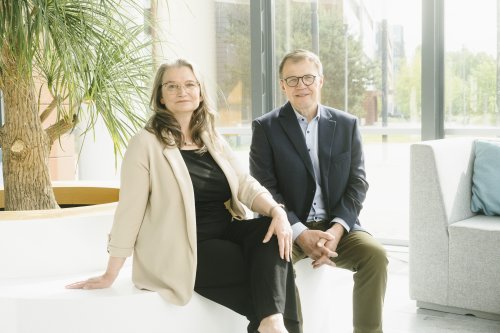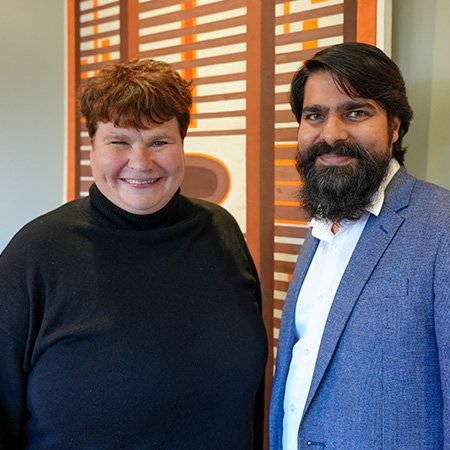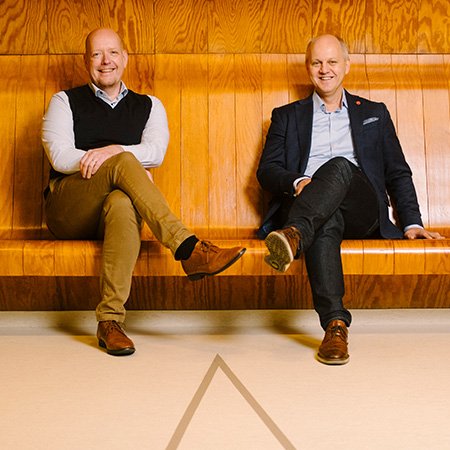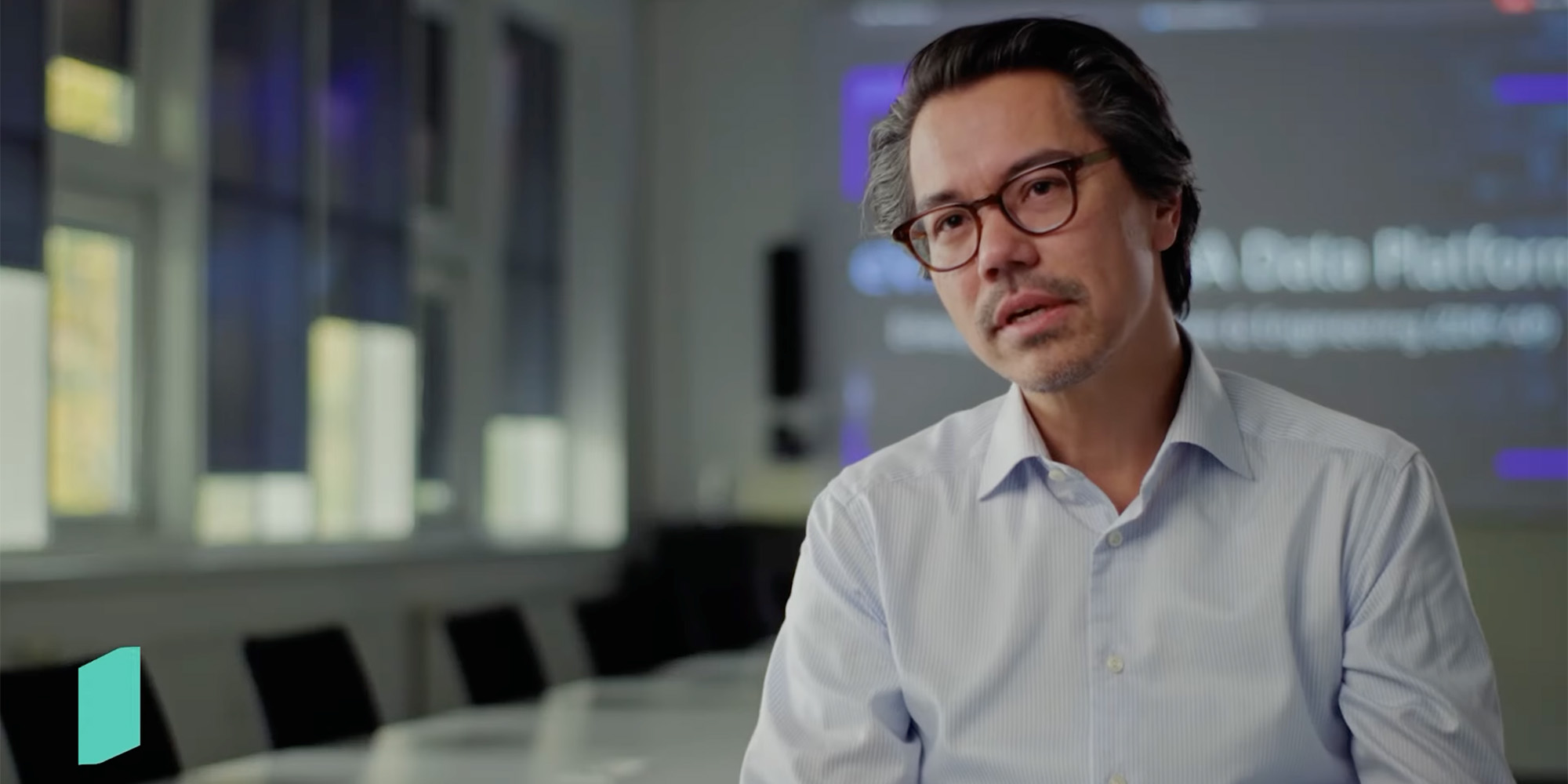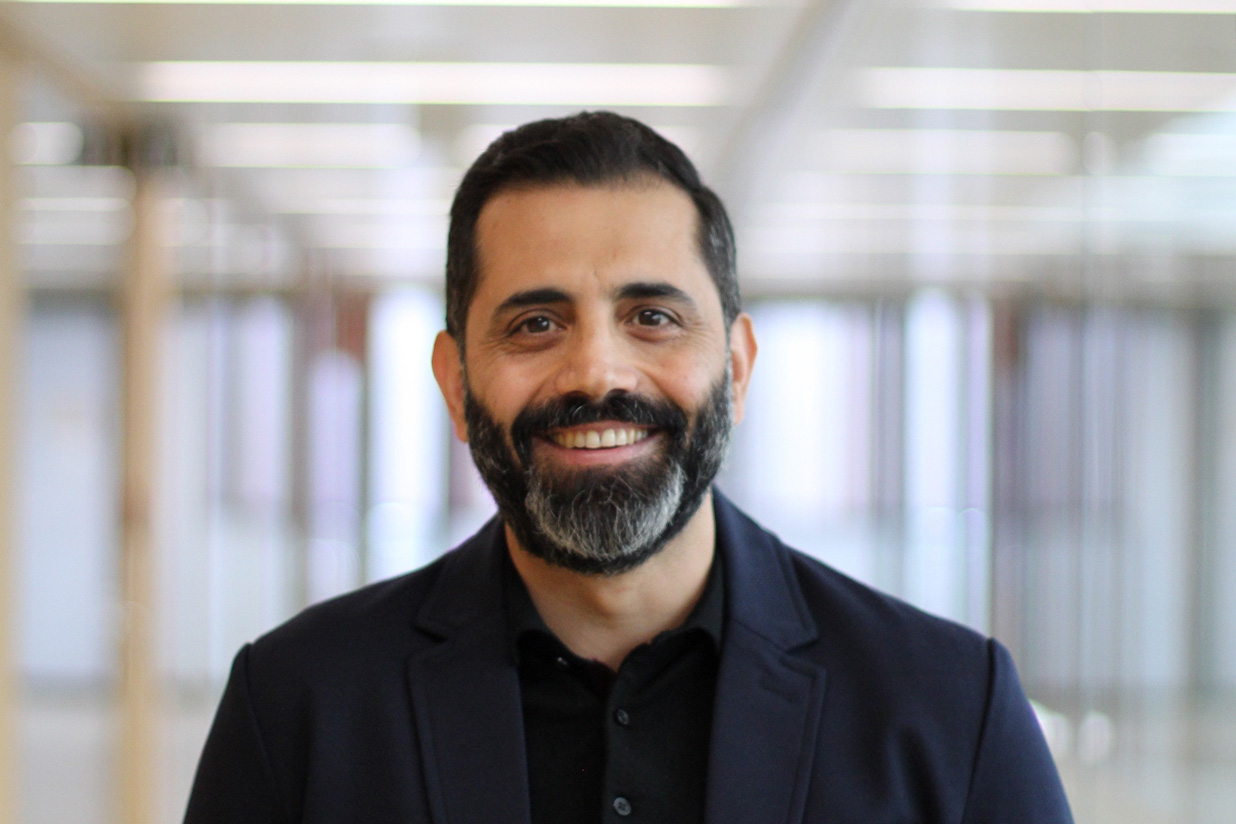Gain Competitive Advantage Through Digital Transformation
In today's rapidly evolving digital landscape, executives must master new technologies at an adequate level to drive growth and maintain a competitive edge. Aalto EE equips leaders and specialists with the essential skills and knowledge to navigate this transformation successfully. Our training programs provide a deep enough understanding of digital strategies, data utilization, and AI applications, enabling you to proactively utilize and lead in the digital landscape.
Get Future-Ready Leadership with Technological Expertise
Aalto EE's training programs go beyond traditional leadership, addressing the critical technological know-how required to meet the challenges of today and of the future. We offer a business-oriented perspective, focusing on strategic-level management and opportunities that have an impact on your top and bottom line. Our programs connect you with cutting-edge research from Aalto University and other top institutions, providing insights into areas such as quantum computing, AI robotization, and the platform economy.
How to Develop Data and Analytics Competences
The Data and Analytics Competence Development Plan contains questions that are useful to consider when planning the development of data and analytics competences. Download the PDF to support your planning.
Data and Analytics Competence Development Plan
pdfThe plan template contains questions to consider while planning Data & Analytics competence development. Download a PDF to help your planning.
CDOIQ Nordic Symposium
On February 11, 2026, for the second time, we are bringing the world-renowned CDOIQ Symposium to the Nordics. The event gathers together business and data leaders from industries, government, and academia to join us for thought-provoking conversations and collaboration in Finland.
What kind of training or development are you looking for?
Featured Insights on AI and Digital Transformation
At what level should every leader and expert understand the applications, data analytics, and the possibilities of quantum computing, or the increasing robotization of AI in different organizational functions? Here at Aalto EE, we have outlined these different levels of learning as follows:
- Be aware
- Understand
- Apply
- Plan ahead
Our perspective is always very business-oriented, looking forward from the perspectives of management and the opportunities for strategic-level management. The network created by experts from Aalto University and other top universities enables the customer to connect with the results of cutting-edge research in artificial intelligence, for example.
We have defined the different areas of expertise in technology and knowledge intensiveness as follows:
- Digital Strategies, Platforms, and Leading Digital Transformation
- Data
- Artificial Intelligence (AI)
- Technologies
We have identified top experts in our network for each of the above-mentioned areas. In addition to the latest research information, we utilize the most up-to-date applied knowledge provided by the business network. We organize our programs in cooperation with the best experts in their field.
Leverage AI and Data to Drive Business Innovation
With access to Aalto University’s expertise in AI technologies, including machine learning and data science, Aalto EE delivers training programs in collaboration with the leading experts. Aalto University is a key player at the Finnish Centre for Artificial Intelligence (FCAI) and in the AI projects launched by the Finnish government. We emphasize the strategic importance of data in the current business environment and provide guidance on leveraging new technologies to drive innovation and achieve concrete business benefits.
Join Aalto EE training programs to gain the expertise and understanding needed to lead digital transformation and technology-enabled teams, as well as to make informed investment decisions in the digital age.
Data Above All
In analytics, the utilization of data is typically divided into three categories: descriptive, predictive, and prescriptive analytics. Descriptive analytics aims to present what has happened based on the data. The general presentation method is different reports that classify and categorize data. Business Intelligence (BI) is a task often focused on descriptive analytics, typically reporting information from the enterprise resource planning system (ERP) and the customer relationship management system (CRM).
Predictive analytics aims to build models that try to predict the future and the likelihood of different scenarios based on data from past events. For example, a typical use is to predict future purchases based on the customer's previous purchase history.
The aim of guiding analytics is to make recommendations for the next step. These recommendations are often based on predictions and probability calculations for alternative choices. Optimization is often discussed in the context of guiding analytics. Optimization refers to the evaluation and selection of the best possible measure, especially when there are a large number of options available and they are difficult to compare. The factors related to production control, such as inventory turnover, are a characteristic example of optimization.
Data Skills Are a Part of Everyone's Toolbox
Decisions are made in every organization and job. Although the intuition provided by experience is useful, decisions will be based on data and knowledge more and more often in the future. Decisions based solely on one's own feelings are risky due to possible errors and various changing circumstances, so active data collection and analysis provide added value and certainty.
Aalto EE supports every expert's and leader's journey in adopting data skills. Data-based business does not mean outsourcing data and skills to the IT department, from which service is requested as needed. A sufficiently in-depth understanding of the prerequisites and possibilities for utilizing high-quality data must be internalized by each employee in order to achieve the culture required for data-based leadership and management. A typical and time-consuming problem is low-quality and inconsistent data, which significantly slows down or, in the worst-case scenario, even prevents data from being utilized.
Data-controlled business is becoming the new standard in a rapidly changing world. At the same time, new industries, such as the mobile gaming industry, are already very data-intensive. If you do not run your operations in the future with data, you risk becoming a prisoner of the past.
Artificial Intelligence Is a Key Change Driver in the 2020s
When talking about data masses that have grown exponentially and come from new sources, artificial intelligence will inevitably become a part of the discussion. Artificial intelligence is quickly transforming all aspects of society, opening up new opportunities and creating new solutions. If an individual or an organization wants to succeed in the competitive environment of the future, they must acquire both new technology skills and a clear understanding of artificial intelligence.
The key features of artificial intelligence are, in particular, the ability to learn and adapt. According to traditional AI specifications, the definition of an AI’s “intelligence” is precisely its ability to act accordingly to each task and situation in a sensible manner. The definition of artificial intelligence is usually made by dividing it into two categories: narrow and strong artificial intelligence. Narrow AI works in limited tasks, but without awareness, will, or understanding of the world outside of the tasks assigned to it. Strong artificial intelligence, on the other hand, has a broad understanding and a human-like consciousness. Narrow AI is already being utilized, for example, in the testimonial systems of various streaming services, in the analysis of long contract texts from law firms, and in the form of life-facilitating voice-controlled assistants (e.g., Apple's Siri, Microsoft's Cortana, and Google Assistant). Strong artificial intelligence only occurs in sci-fi films and in very long-term plans. People are an obstacle to the widespread use of artificial intelligence. Lack of regulation, growing security and privacy problems, and a lack of understanding of artificial intelligence limit the large-scale use of artificial intelligence. Aalto EE strives to contribute to the development of the artificial intelligence era, especially in the last one of these points: by correcting mysticism, fears, and misconceptions.
Value from New Technologies
In addition to artificial intelligence, other new technologies such as blockchain technology, 5G, quantum computing, robotics, IoT, as well as AR, VR, and MR, i.e., virtual, augmented and combined reality, are here to stay and also affect the operations, results, efficiency, and reliability of organizations. New technologies are changing processes, work tasks, customer relationships, the environment, and society as a whole. Recent advances in sensors, algorithms, data processing, and artificial intelligence are shaping robots into more independent operators, which significantly increases their usability.
We need expertise and understanding of new technologies and their purpose, opportunities, and consequences at different levels of the organization. Aalto EE also utilizes Aalto University's world-class expertise as a developer of, expert in, and trainer for these new technologies. Through our new technology-focused programs, you will learn to better understand how technologies work and how the opportunities associated with them are revolutionizing the business environment in practice. Through our programs, you will also be better equipped to lead technology-enabled teams and make technology-related investment decisions. Through our training, we support organizations and companies in the translation of new technologies into concrete benefits for businesses and in leading innovation more effectively, both now and in the future.







